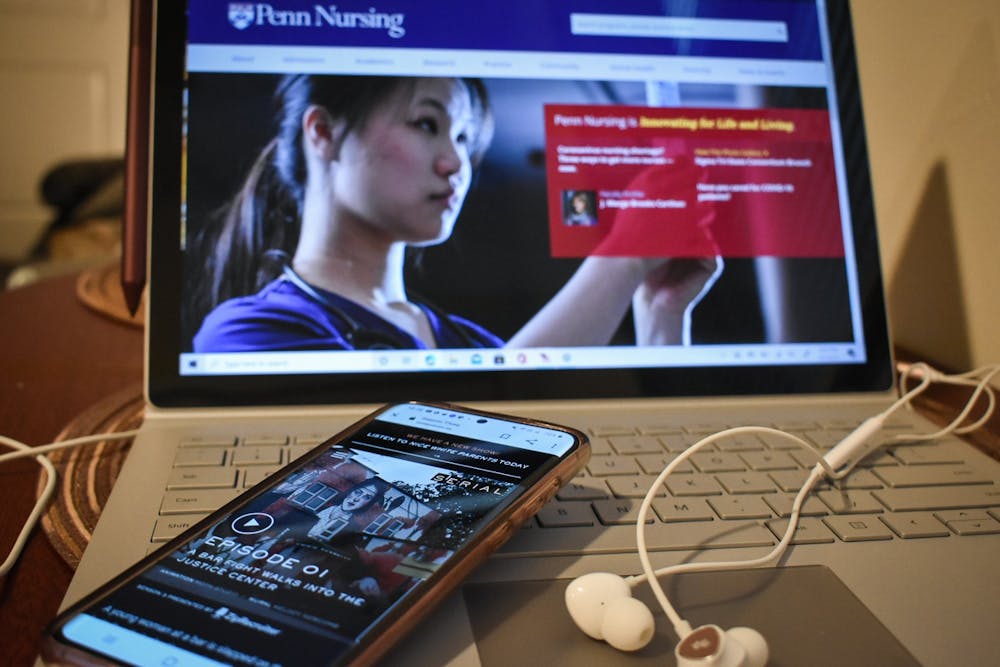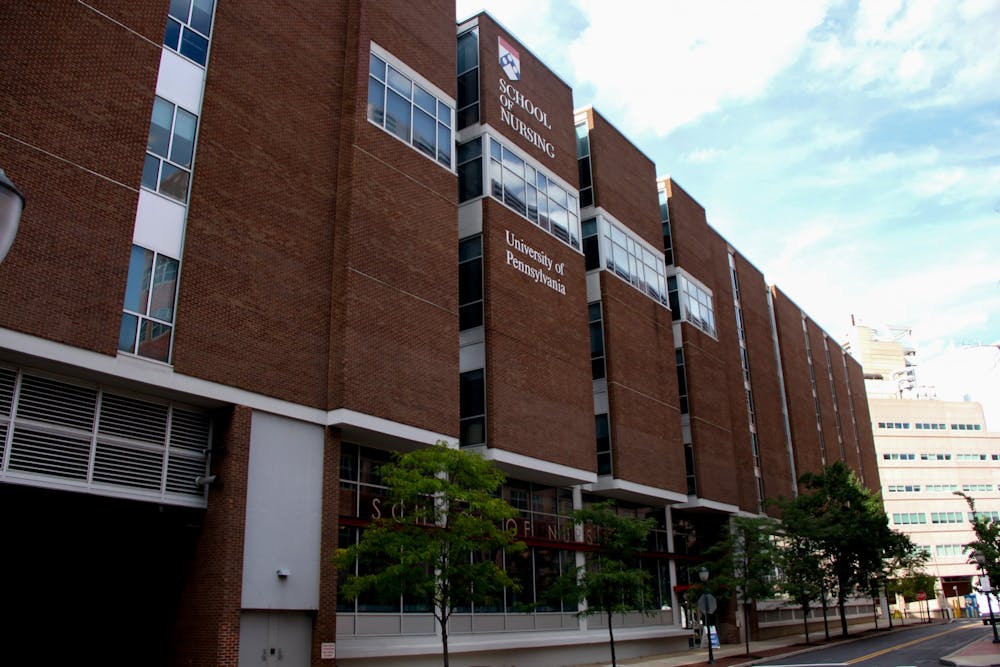
A group of Nursing students penned an open letter to the School of Nursing administration condemning their failure to adequately provide students with academic or financial support, interactive simulation training, or clinical experiences with real patients.
Titled “Student Response to Penn School of Nursing’s Administrative Failures During the COVID-19 Pandemic,” the open letter has garnered 120 signatures as of Sept. 3, one week after it was posted online. The letter argues that although Penn Nursing has been named the best nursing school in the world, students are paying full tuition for very little in-person clinical experience.
The three demands of the letter include an itemized bill for summer and fall 2020 to delineate the costs of clinical experiences and the general fee, a refund for all clinical-related costs for summer 2020, and the formation of a student group to meet with Nursing administrators and discuss how Penn Nursing can provide better financial and academic support for students during the pandemic.
According to the letter, the vast majority of students have not received in-person simulation lab and clinical training since Penn moved all classes online in March due to coronavirus. During clinical rotations, students traditionally have the opportunity to interact with and treat patients. Students' tuitions and fees, however, have not been reduced to accurately reflect the drastic impact the pandemic has had on their education.
Penn President Amy Gutmann and Provost Wendell Pritchett announced in an Aug. 11 email that the University will no longer invite undergraduate students back to campus this fall and will, therefore, not raise tuition by 3.9% for the fall semester as planned by the University Board of Trustees on Feb. 27.
"Although our delivery methods may have changed, Penn Nursing is fully committed to providing the best education for our students, and we are confident that our nurses will be prepared to deliver exceptional care in communities here at home and around the world, no matter the crisis," Director of Marketing and Communications for Penn Nursing William Parker wrote in an email to The Daily Pennsylvanian.
According to the letter, Nursing students used iHuman, an online nursing simulation, and listened to a free podcast called "Serial" in lieu of in-person clinical rotations this past spring and summer terms. Listening to a season of "Serial," an investigative journalism podcast narrating a nonfiction story over multiple episodes, completed 10 clinical hours, the letter read.
A Nursing student, who signed the letter, said iHuman required students to move a cursor over a pixelated chest and choose sentences from a dropdown menu to simulate conversing with patients.
“We don’t expect Penn to magically handle a pandemic, but now they’re supplementing our clinical hours with an online program that looks like a video game,” she said. “Would you want to receive care from a nurse who only has experience clicking drop-down boxes?”

One of the demands of the letter is an itemized bill for Summer and Fall 2020 to delineate the costs of clinical experiences and the general fee.
She said she does not blame Penn Nursing for online clinicals, but "absolutely fault[s] them" for acting like virtual nursing experiences are as equally valuable as hands-on experiences without reducing tuition.
"We had professors in summer jokingly call what was happening in our classes an 'experiment,'" she said. "Our tuition should not be covering a practice run."
Most signatures of the open letter are from students in the Accelerated Bachelors in Nursing program, an 18-month program for students who have a bachelor’s degree in a non-nursing field and are interested in pursuing a second career in nursing. The program typically starts in June and ends in December of the following year. For these accelerated students, a few months loss of in-person training would impact the quality of their education more than regular undergraduate Nursing students, the Nursing student said.
Another Nursing student said she lost seven weeks of in-person clinical experience in the spring and had zero in-person clinical rotations this summer. She expects to start in-person clincials this fall but believes the fall semester does not make up for lost experiences earlier this year.
“We’ve lost six months of instruction, which is a third of our program,” she said. “We’re paying for something that we’re not getting, and we just want recognition of our concerns [from the Nursing administration], like we haven’t just been shouting into the void."
A Nursing student who co-wrote the letter said a group of twenty Nursing students had been working on the letter since April. She hopes the letter will allow the School of Nursing to formally recognize and take action on students' demands.
"The idea of the open letter is to get this in the hands of the higher-ups," she said. "When we reached out to admins, it's been kind of written off, so the whole idea is to get attention."
The letter also pointed to Nursing administration's indifference and inaction regarding requests for financial assistance and funding. Students have been referred to the Office of Financial Aid which simply encouraged students to take out more loans, the letter continued.
At a meeting with students on Aug. 3, Penn Nursing Dean Antonia M. Villarruel responded to a question about COVID-19 relief funding with the suggestion that students share the contact information of their “rich aunts or uncles,” so the school could request funding from them, according to the letter.
Universities across the country have taken varying stances on in-person clincial rotations. The Nell Hodgson Woodruff School of Nursing at Emory University, the University of Cincinnati and the University of Maryland are offering in-person clinical training. Boston University recently canceled fall semester in-person classes, although the fate of nursing clinicals is still up in the air.
"What are we paying for? How do we justify the tuition? We're paying for something that we're not getting," a Nursing student said. "We're listening to a freakin podcast and playing video games."
The Daily Pennsylvanian is an independent, student-run newspaper. Please consider making a donation to support the coverage that shapes the University. Your generosity ensures a future of strong journalism at Penn.
Donate






